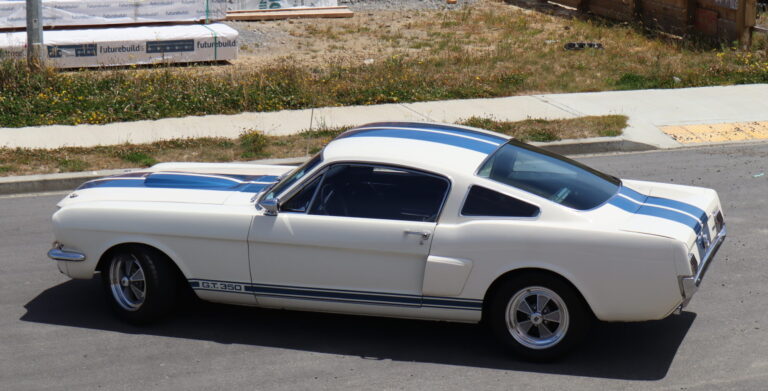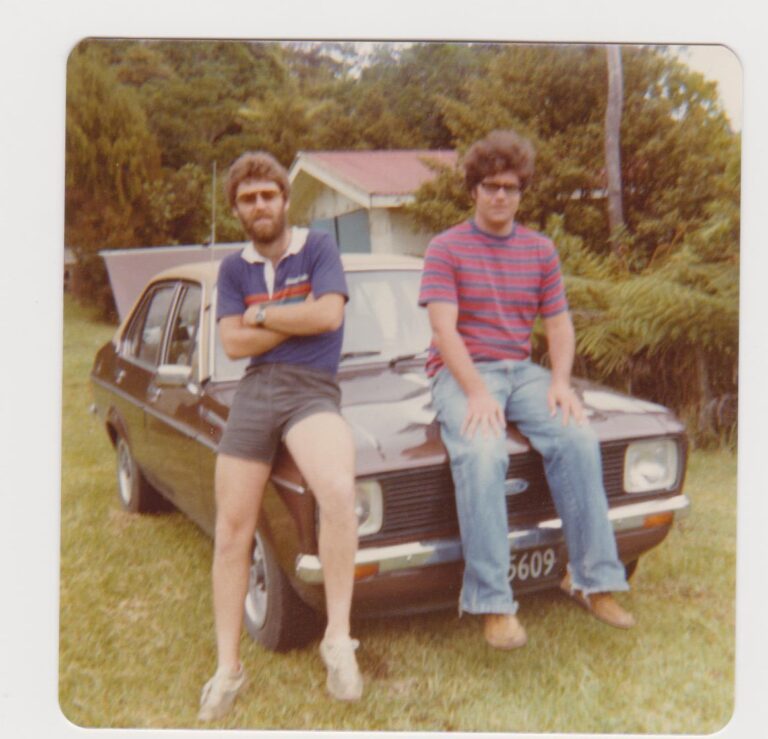We’ve just been informed that the contestants who were involved in a serious accident during Special Stage 14 of Targa South Island, near Oamaru, were father-son team, Greg and Jackson Fowles.
The accident occurred during Wednesday, October 29 when the pair hit a clay bank on the Ngapara-Georgetown Road near the Glen Settlement Road intersection. Greg Fowles was trapped in his vehicle for more than an hour and a half before he was freed and flown straight to Dunedin Hospital.
Racing continued yesterday with Glenn Inkster and co-driver Spencer Winn continuing their winning way.

Greg and Jackson Fowles
Yesterday’s first stage — a 29.97km run through George King Memorial Drive on the edge of the Taieri Gorge near Outram, was a favourite stretch for many of the contestants, runaway event leader Glenn Inkster included.
“I had a real blast through there the second time,” he said, a fact reflected by his time, at 12m 11s — a full 15 seconds quicker than his first run through in the Ecolight Mitsubishi Evo co-driven by Spencer Winn.
With just a final run around Invercargill’s Teretonga Park to go to complete the day, Inkster and Winn were just over six minutes ahead of fellow Mitsubishi pair Todd and Rhys Bawden in the Instra.com Allcomers 4WD class standings with expat South African pair Nic de Waal and Guy Hodgson upholding Subaru WRX honours in third.
As well as being all-new to Hodgson, the roads were also new to de Waal, who was happy to admit that though he had been to Queenstown, that was it as far as his South Island experience went.
“It is really great to see the eastern side of the South Island. The weather has been really good too.”
Heading into yesterday’s six stages, US-based expat Kiwi Gavin Riches and co-driving wife Amy led the Instra.com Modern 2WD class and were second overall to Inkster and Winn in their road-registered Porsche GT3 Cup car.
The pair continued to push hard this morning too, winning their class, until disaster struck in the Catlins stage.
“The car worked really well till the last stage when an exhaust failure put a hole in the muffler,” explained Riches. “The hot gases came through and cooked the drive belt which set off a fire, so we got stuck in there, put the fire out and tried to put a new belt on. We’re running but of course it cost us a lot of time. All we can do now is to fight back and try and get some of the places we have lot back again.”
After shadowing the Riches over the first two days defending Targa New Zealand title-holders Martin Dippie and Jona Grant stepped up to take the class win in the Catlins stage in their Porsche GT3 and also now lead the class overall from Christchurch pairings Dean Buist and Andrew Bulman in a Mk 11 Ford Escort RS1800 and Marcus Van Klink and Dave Neill in Van Klink’s exotic ex-WRC Citroen C2.


